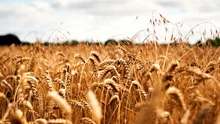
Cholesterol is found in the blood and is responsible for the formation of healthy cells. However, high levels of low-density lipoprotein (LDL), commonly known as "bad cholesterol," can lead to health problems. The accumulation of bad cholesterol in the arteries steers to the formation of plaque. This plaque can narrow or block arteries, leading to atherosclerosis, which increases the risk of heart disease, heart attacks, and strokes.
Can Bad Cholesterol Be Tackled with Foods?
Yes, dietary changes can significantly impact your LDL cholesterol levels. Certain foods can help lower bad cholesterol by either absorbing cholesterol from the bloodstream, reducing cholesterol production in the liver, or preventing cholesterol absorption in the gut. Let's explore six foods that can help fight bad cholesterol and how to incorporate them into your diet.
1. Oats
Oats are rich in soluble fibre, particularly beta-glucan, which can reduce LDL cholesterol. Soluble fiber binds to cholesterol in the digestive system, preventing it from being absorbed into the bloodstream. Start your day with a bowl of oatmeal. You can also add oat bran to smoothies, and yogurts, or bake it into muffins and bread.
2. Fatty Fish
Omega-3 found in fatty fish can lower triglycerides, reduce inflammation, and increase high-density lipoprotein (HDL) or "good" cholesterol, which helps remove LDL cholesterol from the bloodstream. Grill, bake, or broil the fish for a healthy and delectable meal. You can also add fish to salads, tacos, or pasta dishes.
3. Nuts
Nuts such as almonds, walnuts, and pistachios are rich in monounsaturated fats, fibre, and plant sterols, which can lower LDL cholesterol. Plant sterols compete with cholesterol for absorption in the digestive system, reducing cholesterol levels. Snack on a handful of nuts, add them to your morning cereal or yogurt, or use them as a crunchy topping for salads and desserts. Be mindful of portion sizes, as nuts are calorie-dense.
4. Avocados
Avocados are packed with monounsaturated fats and fibre, both of which are beneficial in lowering LDL cholesterol. They also contain beta-sitosterol, a plant sterol that helps reduce cholesterol absorption. Add avocado slices to sandwiches, salads, or smoothies. You can also make guacamole or use avocado as a spread on toast.
5. Legumes
Beans, lentils, and chickpeas are excellent sources of soluble fibre, which can reduce cholesterol absorption in the gut. They also provide plant-based protein and essential nutrients. Incorporate legumes into soups, stews, salads, and casseroles. Replace meat with legumes in dishes like tacos, burgers, or pasta sauces for a plant-based alternative.
6. Olive Oil
Olive oil, especially extra-virgin olive oil, is high in monounsaturated fats and antioxidants. It can help reduce LDL cholesterol while boosting HDL cholesterol levels. Use olive oil as a primary cooking fat. Drizzle it over salads, and vegetables, or use it as a base for salad dressings and marinades.
Remember, these dietary changes should complement a healthy lifestyle that includes regular exercise and avoiding smoking and excessive alcohol consumption. By making these adjustments, you can take significant steps toward a healthier heart and a longer life.













